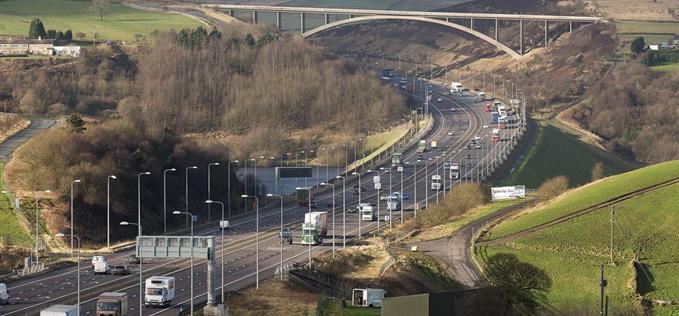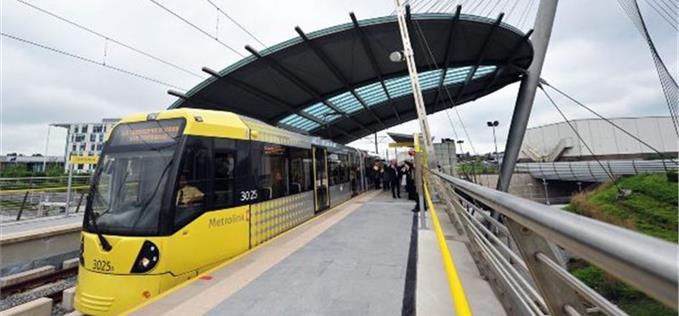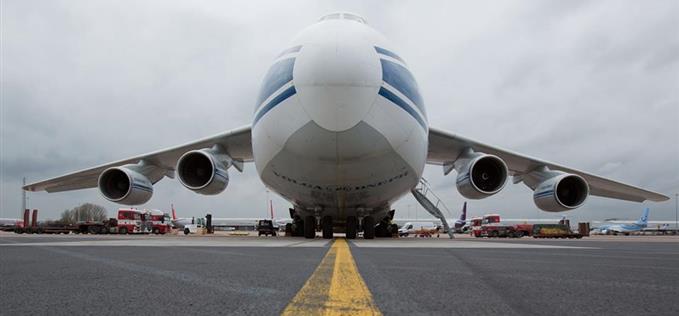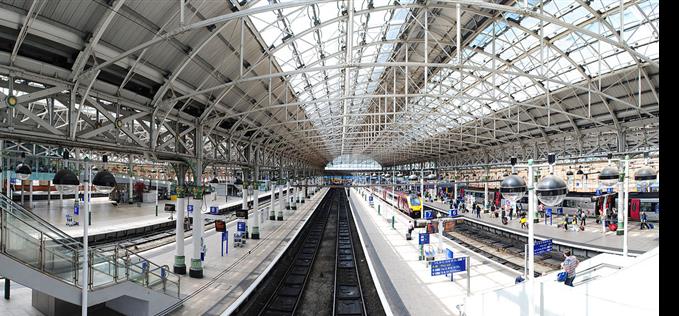ANOTHER day, another show of confidence.
Now it’s the turn of transport chiefs to come up with astonishing show of optimism with a blueprint for wholesale changes across the North of England which could cost up to £88bn by the Government's own estimates.
Led by Sir Richard Leese, the council leader of Manchester, the vision includes reduced times for train travel, increased efficiencies over ticketing, big plans for road improvements and so it goes on. Twenty minutes to Liverpool on the train anyone?
“Our cities are individually strong, and increasingly have the tools to grow, but by working together they can be stronger than the sum of their parts"
After £6bn worth of NHS devolution to Greater Manchester and a return of 100% revenues from business rates to Greater Manchester and East Cheshire the great breakout from an over-centralised, London-bias, seems to be gaining pace. Bring it on.
So what's going on?
The new report launched by Transport Secretary Patrick McLoughlin at a meeting in Liverpool today will lay out plans for a new Transport for the North (TfN) rail system (HS3 to the rest of us) to complement HS2, which Chancellor George Osborne hopes will 'revolutionise' transport across the North.
“Connecting up the great cities of the North is at the heart of our plan to build a Northern Powerhouse,” says Osborne.
The plans also include new east to west road routes, tunnels and Northern Oyster cards.
Treasury analysis estimates that rebalancing the UK economy would be worth an additional £56 billion in nominal terms to the northern economy, or £44 billion in real terms – equal to £1,600 per individual in the North.
Highlights of the new plans...
*An independent chair will be in place by autumn 2015 to lead the Transport for the North (TfN) bosy - representing the whole of the North.
*Trains capable of up to 140mph will link Manchester, Liverpool, Leeds, Sheffield, Newcastle and Hull as part of the new 'TransNorth' network.
*Journey times between Manchester and Liverpool will plummet to 20 minutes, Manchester to Sheffield/Leeds to 30 minutes and Leeds to Hull in 45 minutes.
*The new rail lines will each cost anywhere between £8bn to £19bn, with a total maximum project cost of £88bn by Government estimates.
*A new rail line across the Pennines and a new potential road tunnel under the Pennines between Sheffield and Manchester.
*Upgrading the M62 to four lanes of 'Smart Motorway'.
*Transforming the M6 to a four lane 'Smart Motorway' between Junction 16 (Stoke on Trent) and 19 (Knutsford) and between Junction 21A (Warrington) and 26 (Wigan).
*Immediate action to simplify rail fares and eliminate unfair price differentiation.
*An Oyster-style travel card covering the whole of the North.
 The M62 could upgrade to four lanes
The M62 could upgrade to four lanesHere's the full press release...
A blueprint for building the ‘northern powerhouse’ and boosting the economy of the North of England will transform connectivity with a high-speed TransNorth rail system, a revitalised highways network and a host of other transport improvements.
Transport for the North (TfN), the body set up to identify how best to drive economic growth through strategic investment in transport, will unveil its ambitious vision in a joint report with Government – ‘The Northern Powerhouse: One Agenda, One Economy, One North’.
The report includes details of a new TransNorth rail system that will radically reduce travel times and complement the investment into HS2. It also sets out how the North’s strategic road network could be enhanced through strategic planning, investment and technology, and better connections to ports, airports and key economic centres.
Sir Richard Leese, Chair of the TfN Partnership Board and leader of Manchester City Council, said: “Our vision is for a North which has a vibrant and growing economy, acts as a magnet for inward investment, and which capitalises on the strengths of the great cities of the North.
“Our cities are individually strong, and increasingly have the tools to grow, but by working together they can be stronger than the sum of their parts. But what is absolutely vital is securing long-term, cross-party support around our investment plans which run for at least the next 15 years, and the delivery can't change with every election.
“This new report sets out a long-term investment plan in rail and the important relationship between HS2 and regional rail services as well as roads, ports, and airports – covering both passengers and freight.
“What it will deliver is a single market for people, goods and ideas that will empower the North to compete with the rest of the world and become an engine for growth in the UK.”
 Metrolink
MetrolinkTo achieve this, work will now begin to:
*Transform city to city rail connectivity East/West and North/South through both HS2 and a new TransNorth system, radically reducing travel times across an intercity network.
*Ensure there is the rail commuter capacity and frequency that a resurgent North will need.
*Deliver the full HS2 'Y' network as soon as possible, including consideration of accelerating the construction of the Leeds-Sheffield line.
*Enhance the performance of the North's Strategic Road Network (SRN) through delivery of the committed first phase of the Roads Investment Strategy.
*Further enhance the longterm performance of the northern SRN through a clear vision and strategy that embraces transformational investment and technology.
*Set out a clearly prioritised multimodal freight strategy for the North to support trade and freight movement in the North and to national/international markets.
*Deliver better connections to Manchester Airport through TransNorth, whilst city regions consider connectivity to the North's other major airports.
*Develop integrated and smart ticket structures to support our vision of a single economy across the North.
The new report was launched by Transport Secretary Patrick McLoughlin at a meeting in Liverpool today (Friday, 20 March) with political and business leaders from across the North, representing key city regions including Greater Manchester, Liverpool, Leeds, Sheffield and Newcastle, together with Hull and the Humber, the Highways Agency, Network Rail, and HS2 Ltd.
Transport Secretary Patrick McLoughlin said: “This dynamic change, led by the Chancellor with northern leaders, transforms the way government looks at transport solutions for the North. No government has given such attention to the infrastructure of our great northern cities and how to deliver a world-class, integrated transport network for the north. The proposals announced today will reduce journey times while increasing capacity and connectivity, enabling growth.
“Creating a ‘northern powerhouse’ of jobs, investment and prosperity, is a key objective of the Government’s long term economic plan. We are planning for transport and growth in a new joined-up way. Today we set out a comprehensive strategy for the northern economy which will help the north pool its strengths. Transport for the North gives the north a powerful new voice.”
 Manchester Airport
Manchester AirportTfN was set up by the Government in October 2014. It is a unique partnership between the northern city region authorities, Government and the national transport agencies.
Chancellor George Osborne has said the creation of a ‘northern powerhouse’ is vital to rebalance the national economy, addressing the gap in economic performance between the North and London and the South East.
Chancellor of the Exchequer George Osborne said: “Connecting up the great cities of the North is at the heart of our plan to build a ‘northern powerhouse’. This report has the potential to revolutionise transport in the North and we will work closely with Transport for the North to help make it a reality.
“From backing high speed rail to introducing simpler fares right across the North, our ambitious plans for transport means we will deliver a truly national recovery where every part of the country will share in Britain’s prosperity.”
Treasury analysis has shown that rebalancing the UK economy would be worth an additional £56 billion in nominal terms to the northern economy, or £44 billion in real terms – equal to £1,600 per individual in the North – on top of the £290 billion the region already generates, rivalling the best trade centres in Europe.
To help deliver this, a £12.5 million development budget has been set to progress the proposals included in the report, which sets out the shared vision for the North’s transport infrastructure, integrating committed initiatives and schemes and identifying a host of new transformational priorities.
The initiatives, schemes and priorities to be developed, include options for:
Rail
*Achieving 20-minute journey times between Liverpool and Manchester on a new TransNorth rail network.
*Achieving 30-minute journey times between Manchester and Leeds and Manchester
and Sheffield.
*Exploring the option to create a new rail line across the Pennines from
Manchester linking with HS2 between Sheffield and Leeds to create a high speed network
between the three cities.
*Exploring the option for a new rail line from Manchester to Sheffield along a similar route to the potenential road tunnel which is also being explored.
*Achieving 45-minute journey times between Leeds and Hull and 50-minute
journey times between Sheffield and Hull.
*140 mph trains between Leeds and Newcastle potentially cutting journey
times by up to 35 minutes
Highways
*Upgrading the M62 to four lanes of Smart Motorway along its entire length from east of Leeds to Manchester.
*Transforming the M6 to a four lane Smart Motorway between Junction 16 (Stoke on Trent) and 19 (Knutsford) and between Junction 21A (Warrington) and 26 (Wigan).
*Completing the upgrade of the A1 to provide continuous motorway standard between London and Newcastle.
*Upgrading the M1 J32-35a and 39 to 42 to Smart Motorway to enable hard shoulder running.
*Improving road links to the major ports in Liverpool, Hull and Humber supporting freight.
*Developing the next generation of major road improvements to address east-west connectivity and strategic bottlenecks.
*Exploring the possibility of a major new road link under the Pennines between Sheffield and Manchester - to take HGV and other traffic out of the Peak District national park and protect the natural heritage.
*Exploring options to significantly upgrade the A66 from Scotch Corner to Penrith and the A69 from Newcastle to Carlisle - both aimed at better connecting the M6 to the A1.
*Exploring options to resolve congestion on the M60 (junctions 8 - 18) and M62 between Manchester and Warrington
 Piccadilly Station
Piccadilly StationFreight:
*Delivering a comprehensive upgrade to the A5036 to the Port of Liverpool.
*Delivering significant upgrades to the M62 and M60 to provide faster and more reliable journeys.
*Completing work to assess options for new Trans-Pennine tunnels (including both road and rail options) to provide relief for the A628 from Manchester to Sheffield.
*Studying options to dual the A66 or the A69 in the Northern Pennines.
*Completing a series of upgrades to the A1(M) to improve journey reliability to distribution centres around Doncaster and Sheffield and improving access to Tees Port.
*Continuing to improve the A19 from North Yorkshire to Newcastle, whichw ould support access at the Ports of Tyne and Tees.
*Completing the upgrade to the A160/A180 to the Port of Immingham, including fully upgrading the A160 to dual carriageway between the A180 and the Port.
*Completing the upgrade of the A63 Castle Street between Hull and the M62.
*Working with northern ports to ensure that their expansion plans are accounted for when developing the wider distribution network.
*Producing a northern multimodal freight and logistics strategy to inform future development of transport investment plans. This strategy will bedeveloped over the next 12 months and will be published in 2016.
Smart ticketing and fares:
*Taking immediate action to simplify rail fares across the North, eliminating the unfair price differences that exist.
*Drawing up proposals for a fares structure areas for an integrated northern travel area connecting the North.
*Aligning the different tickets and approaches in northern cities.
*Engaging with public and private operators of public transport to agree appropriate ways of introducing new technology
It has a board made up of the following city regions, their LEPs, and national agencies: Greater Manchester, Liverpool, Leeds, Sheffield, North East, Hull and the Humber, Department for Transport, Highways Agency, Network Rail, HS2Ltd.















